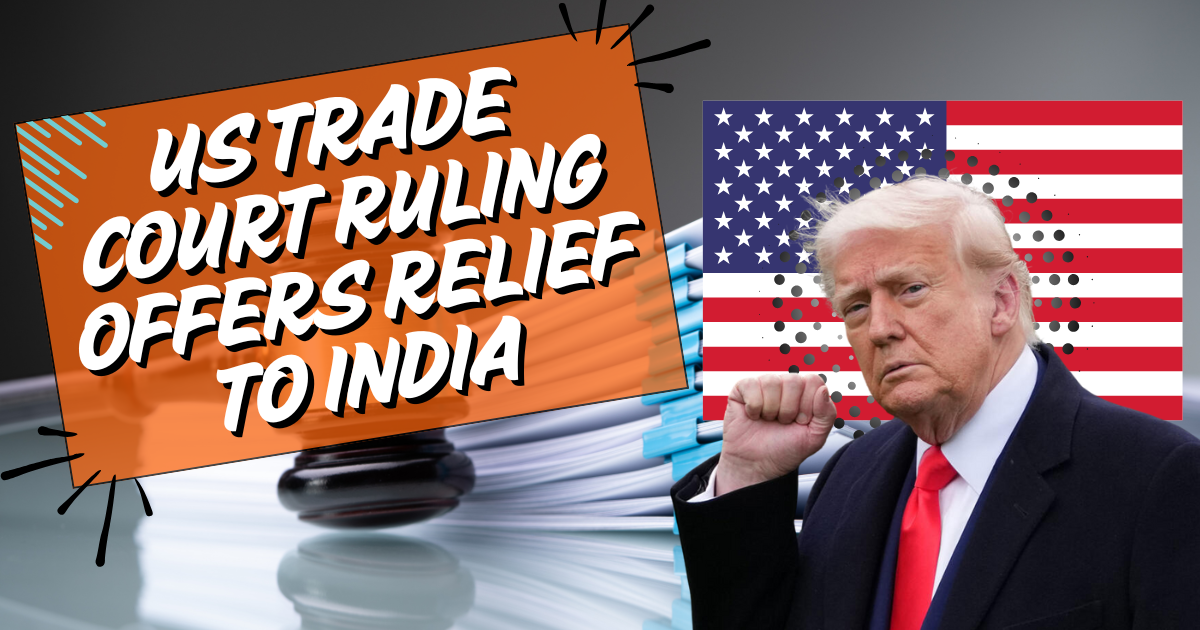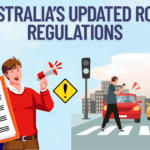US Trade Court Ruling Offers Relief to India. The American trade court’s verdict that President Donald Trump overstepped his authority while imposing ‘Liberation Day’ import duties may strengthen India’s bargaining power while negotiating a bilateral trade deal with the US, experts said, adding that it could also ease pressure on New Delhi to sign an interim deal before July 9 or face a 26% reciprocal tariff. To know more about the topic “The US Trade Court Ruling Offers Relief to India,” read the complete article.
US Trade Court Ruling Offers Relief to India
A federal appeals court temporarily reinstated the most sweeping of President Donald Trump’s tariffs on Thursday, a day after a trade court had ruled Trump had exceeded his authority in imposing the duties and ordered an immediate block on them. The United States Court of Appeals for the Federal Circuit in Washington said it was pausing the lower court’s ruling to consider the government’s appeal and ordered the plaintiffs in the cases to respond by June 5 and the administration by June 9.

The United States Court of Appeals for the Federal Circuit in Washington said it was pausing the lower court’s ruling to consider the government’s appeal and ordered the plaintiffs in the cases to respond by June 5 and the administration by June 9. Wednesday’s surprise ruling by the U.S. Court of International Trade has threatened to kill or at least delay the imposition of Trump’s so-called Liberation Day tariffs on imports from most U.S. trading partners and additional tariffs on goods from Canada, Mexico, and China. The latter was related to his accusation that the three countries were facilitating the flow of fentanyl into the U.S.
Judicial Process
As the Trump administration’s appeal makes its way through the American courts, what is clear is that this case will most likely end up at the the US Supreme Court at some point in the near future. The three-judge panel at the US Court of International Trade, which comprised one Trump appointee, had ruled overwhelmingly that the statute the White House used, known as the International Emergency Economic Powers Act or IEEPA, does not give the American President the power to implement tariffs with a really broad scope, as were imposed via Trump’s reciprocal tariffs on practically all significant trading partners of the US. They said in the ruling that the emergency economic powers legislation (IEEPA) does not give “unbounded tariff authority” to the President and that the statute can only be used for unusual and exceptional dangers. Trade deficit, they said, does not truly meet that criteria.
In the meantime, there are industry-specific tariffs that the Trump administration placed on steel, aluminum, cars, car parts, etc., under a different statute known as Section 232, which could be used in the near future for things such as semiconductors and pharmaceuticals too. Those were all imposed citing national security reasons and were separate from the tariffs under IEEPA. Those were imposed citing national security reasons and were distinct from the tariffs under IEEPA. Those can all stay in place for the moment, and there is a chance that the Trump administration would now use provisions such as Section 232 to impose such sector-specific tariffs on countries, especially if the Federal Circuit court were to also decide against the IEEPA levies.
Exporters and Other Industries Cautious
“The decision to include the sectoral tariff in the overall trade negotiations was much needed and will help protect domestic industries, including MSMEs,” said Pankaj Chadha, partner and CEO of Jyoti Steel Industries and chairman of the Engineering Export Promotion Council (EEPC), to The Secretariat. Earlier this month, Commerce and Industry Minister Piyush Goyal was in the US for the BTA negotiations.
Though the US court’s decision has brought some happiness to India Inc., major companies in the industry are proceeding with caution. “It is too early to comment on the implications of the US court ruling. At present, the situation continues to be uncertain. But having said that, the order has come as a relief, even though both countries are set for a trade pact,” a promoter of a mid-sized exporting firm said.
After India and the UK agreed on a free trade agreement, which Prime Minister Keir Starmer called Britain’s biggest since Brexit, talks with the European Union are on course. The FTA talks between India and the EU were put on hold in 2013 because of disagreements over the terms and expectations of the agreement.



